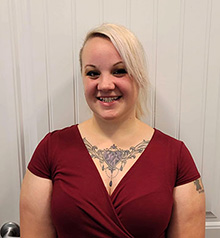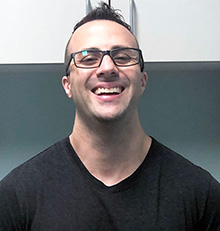Intensive Lifestyle Intervention
The US Preventive Task Force (USPTF), The American Heart Association, The American College of Cardiologists, the Center for Disease Control (CDC), The American Diabetes Association, and The American College of Endocrinologists all published position recommendations on or around 2014 indicating that Intensive Lifestyle Intervention is the New Standard of Care for the treatments of coronary heart disease, hypertension, prediabetes, diabetes and Alzheimer’s disease.
We are unique in this community because of the way we approach lifestyle intervention by using the numerous tools we have at our disposal for assisting patients with meaningful lifestyle changes. Our program starts with a review of a patient’s specialized and advanced metabolic labs with a complete nutritional workup when needed. This review is performed by Dr Evans or one of our specially trained Nurse Practitioners: Sapphira Clark, Sophie Hill and Angela Whitley and is intended to point out a patient’s specific health risks along with potential roadblocks inhibiting weight loss, providing the patient with strategies to work around those roadblocks. Based on the results of these tests, patients may be placed in a personalized program for lifestyle and preventive management. Depending on a patient’s readiness for change and the number and magnitude of health problems, there are two levels of intensive lifestyle intervention that we refer to as the Lifestyle Program.

To qualify for the Intensive Lifestyle Intervention program, the guidelines provided by the US Prevention Task Force (USPTF) and the American Diabetes Association recommend a minimum of 16 sessions over a 6-month period lasting 30 to 60 minutes each. Our program supervisor is Tracy Evans who is certified as a Lifestyle Educator from the American Academy of Lifestyle Medicine, as well as other certifications in Metabolic Physiology. She has also lost 80 pounds and has been able to keep it off for over a decade. Our other Lifestyle Educators are Drea Smith, who is certified through the American Academy of Lifestyle Medicine and Clay Hall, who is a certified personal trainer and health coach through the American College of Exercise (ACE), and also a Lifestyle Educator through the American Academy of Lifestyle Medicine.
There are 6 pillars to Lifestyle Medicine: stress resilience, adequate sleep quantity and quality, exercise, diet, nicotine and alcohol addictions. The first four pillars are addressed by Lifestyle Educators on each of your visits. Nicotine and alcohol addictions can be dealt with by qualified medical providers and followed up by Lifestyle Educators.
Changing your lifestyle can be a tall order for anyone. That is why we offer a personalized physician-led Healthy Living Program (The Lifestyle Program). We recommend this program as a long-term journey towards developing new, healthy habits in which you will be seeing Lifestyle Educators frequently in the beginning but gradually weaning to maintenance visits when you are habitually maintaining your new healthy lifestyle.
On each visit, after your weigh-in on our body composition scale and after you receive vitamin shots, you will consult with one of our Lifestyle Educators weekly until you feel comfortable with the program (usually after six months or so), after which you may wish to come in bi-weekly or even monthly for sessions. During these sessions, your individual goals will be discussed based on your Lifestyle Educator’s advice and your health conditions. We can also provide exercise assessments and training by our Health Coach and Personal Trainer, Clay Hall. Community support is provided in our closed Lifestyle Facebook Group and our Lifestyle Pinterest site. We recommend continued 3-month lab reviews with one of our practitioners to see how you are progressing and to provide ongoing support. Once you have graduated from the program, these labs will continue to reinforce that you have maintained your health, including your weight.

In each session, the Lifestyle Educators review stress and help with techniques to improve resilience. Recent studies have shown, for example, that people that are stressed have a change in taste sensation (more bitter and less sweet), which leaves them dissatisfied and wanting more (emotional eating). Stress also depletes our energy, distracts us from creativity and leads to poor coping skills, which can set one up for bad lifestyle choices. Stress also compromises our immune system and sets us up for gastro-intestinal problems.
Sleep duration and quality (including compliance with CPAP if sleep apnea is being treated) will be assessed with each visit. People sleeping less than 6 hours a night over a lifetime, can shave a decade off their life.
Exercise starts with basic movement for some and may be more advanced for others. Eventually, all patients are advised that optimum health is associated with moderate-intensity physical activity amounting to 150 minutes a week. When appropriate, patients may be referred to our ACE certified personal trainer.
Your will receive a personalized Diet Plan, which will depend on your goals and your health. Some are calorie restricted, while others are not, but all patients will start a journey towards a healthier diet, which includes whole foods and mostly plants. There are some conditions where we HIGHLY recommend a complete whole food plant-based diet (APO E 4 genetic defect, type 2 diabetes with reversal intentions, known cardiovascular disease with reversal intentions, or anyone with a family history for Alzheimer’s disease). Some patients join the program for weight reduction, and these individuals may be calorie and oil restricted (if not pure plant based). There is usually no need to count calories in most people who adopt plant-based eating and wish to lose weight.
Our focus is to repair a patient’s underlying physiological problems using evidence-based principals which incorporate lifestyle changes to obtain benefits for your health and quality of life. It takes a lifetime to change lifestyle habits and the hardest work in is the first three to six months.

Should you decide to join the program, you will have taken the first step in taking control of your own destiny, and it is our job while you are here to facilitate “your journey.”
The essential principal of this program is to remove that which is causing damage to a patient’s health to allow the body to heal. To make it truly workable though, it is not just a matter of convincing the patient, but also the patients’ community. Food is how we connect with people and telling people not to eat unhealthy foods may put them on the defensive not only because of the changes they will have to make but because, basically, we have all been eating unhealthily most of our lives. Lifestyle patients are taught a new way to enjoy life, and they also need their friends and family to support them.
Intrinsically, people do not like to make a lot of change, which can send them back to old habits. We refer to this as “the patient’s journey,” and like all journeys, there will be obstacles, and switchbacks, and even restarts, and we embrace all of these without judgement.
Our second level of lifestyle intervention is our Wellness Program for people with medical problems who might not be ready for dramatic changes in lifestyle.
OUR LIFESTYLE PROGRAM RESULTS:
Our analysis of results from the Lifestyle Program for the years 2016 through 2020 showed that in people highly motivated, it was reported an average 3-month weight loss of 16.8 pounds with an improvement in insulin resistance (sugars) and cholesterol. At 6 months, 69% of these patients had reversed their prediabetes, 24% had reversed their diabetes and 50% had normalized their cholesterol, while most patients were off blood pressure medications.






